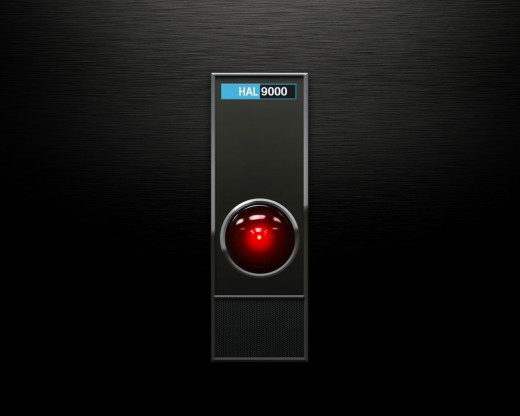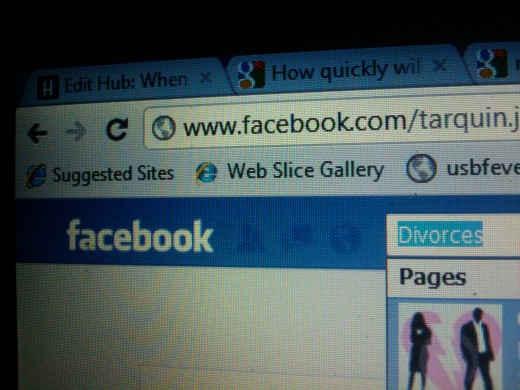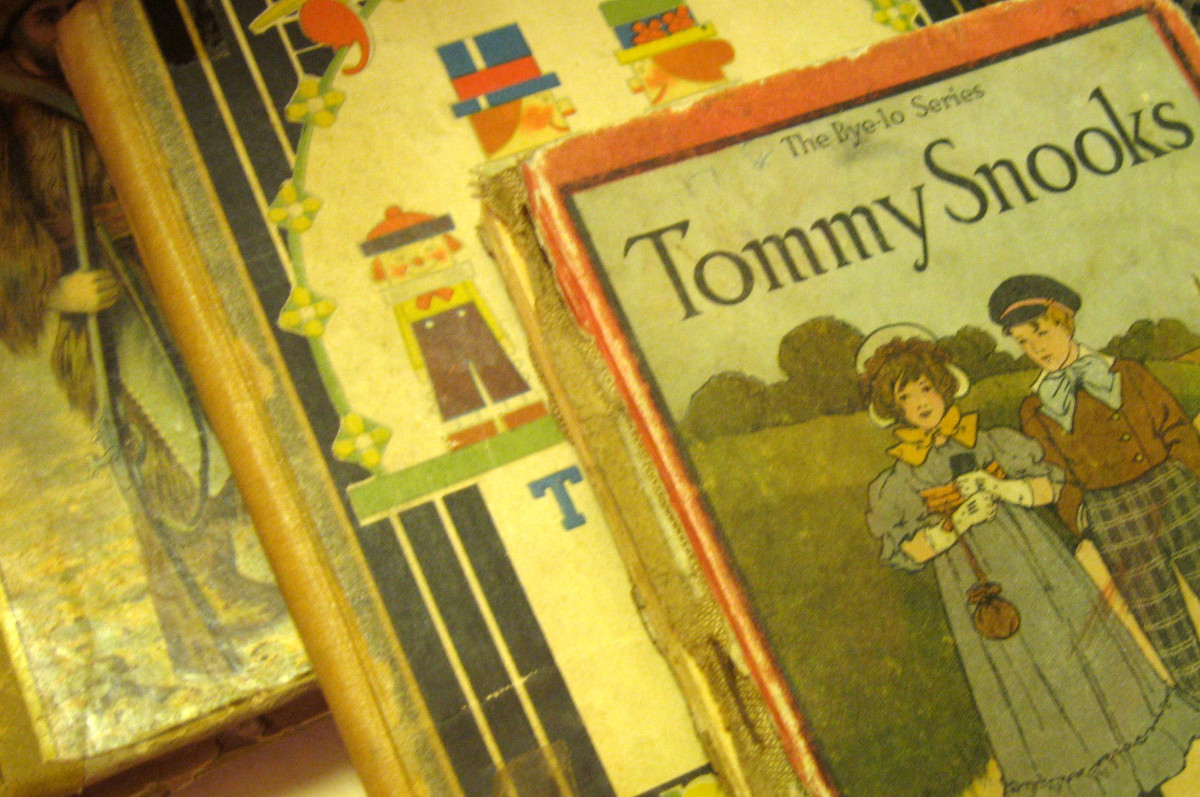When Technology Becomes A Bad Thing

Lately I've been looking at people and how they interact with the various pieces of technology that surround or are on them. I will certainly see several persons performing some activity on a cellular phone and many times it's a smart or feature phone with advanced capabilities. Blackberries, believe it or not, are very popular in my neck of the woods. For certain, a great deal of persons that I see walking around have ear buds in their ears. I'm beginning to see as well laptops in the hands of teens, some of them sitting ion the curb with the computer on their, well, laps doing whatever teens do on laptops. Tablets haven't caught on as much in the general populace but there's been a great deal of talk about integrating them into business processes of several organizations I interact with. I wonder though with all the tech that we have at our disposals, are we putting it to the best use or is technology becoming a bane to us?

Search Substitutes for Memory Recall
Recent studies are suggesting that we are actually becoming dumber because of the accessibility of search tools like Google. I think it's really great that you type in a few words that represent a general query you have and in less that a millisecond the site spits out a slew of responses that align with your request. Heck, Google has become so popular and is so efficient at searching that the name "Google" has become cannonized as a verb by all netizens meaning "to search the Internet" as in, "Let me google that."
The basis for the study's suggestion is that our ability to recall information is rewired by the experience we've had with Google helping us get the answers we need. Essentially our resolve to remember a particular piece of information is hampered by the knowledge that Google can probably spit out what we need very quickly, after a few clicks and keyboard taps. Now, mobile devices such as smart phones and tablets, are extending this capability so that it's almost always right at our fingertips. I've personally experienced this when trying to remember information on a topic I'm discussing with my friends or colleagues. Rather that stick at filing through my brain, I pop out my phone and search. Thinking about it now, I am becoming more stupid!
Augmented Reality
Google has gone a step above everything else with it's proposed augmented reality product titled Project Glass. It's essentially a device that looks like spectacles but facilitates direct interaction with the world of resources available on the Internet. It's a remarkable concept that, if made a reality, will change everything within the communication technology industry, again. I want one, really, I do. Nevertheless I'm cautious just as many out there would be I'm sure. There may be wonderful benefits to be achieved with this but think of the ills.
Imagine someone using their Glass while driving and constantly distracted by the feed - you know this can happen. I'm not sure where Glass is going to explode into but I imagine there'll be video content, gaming and a lot of the other functions we have available today with today's smart phones only with a lot more intuitiveness. Someone may then be able to completely immerse themselves in there own Glass world oblivious to the things happening around them. The kind of thing that makes good sci-fi movies but it's not a stretch to see this happening if this product really kicks off.
Communication and Sharing Online
Email, Facebook, chatting, texting - these have all become regular words in our vocabulary. Mind you texting is still not considered and actual word by spell checkers but you'd never know this by how often it's used. I've seen where these tools are now main methods of communication between a pair or small group of individuals and of course, they do have their uses. For example, if you don't need an urgent response on a matter, you can send an email with the general expectation that it would be answered within 24 hours. Chatting and texting allows us to send quick bursts of communication and get more or less immediate responses. The very popular Facebook brought is the ability to connect, online, with friends and acquaintances we've lost touch with, and share thoughts and experiences through photos, games and entertainment and various other activities, all with the blazing speed of electrons and photons over the Internet pathways.
The problem with this though is that we've gone to extremes with this. I remember (Google can't help me with this) looking back on an email trail that I had participated in over the course of a few days and, accounting the time and effort in sending these messages, I wondered if it wouldn't have been faster to just get the people involved in a meeting or conference call and hash it out in 30 mins or an hour.
Texting
A colleague I know expended several hundred (TT) dollars in text message communications every month and I prompted her to look for a way to bring her text costs down because it didn't make sense throwing away money like that. Costs were certainly a concern in that instance but the shear number of messages was what concerned me. I've heard of some instances where people are in the same room and are texting each other. In my small office we sometimes forgo a brief walk in favor of calling someone on their extension. It's not texting but there's something to be said when you don't want to, literally, take a few steps to have a discussion.

Facebook is a great tool. It reminds me the very popular ICQ (pronounced "I seek you") because of how it allows you to link with people you've lost touch with. But someone very close to me experienced very negative repercussions because of some nasty public posts on Facebook. I've also read articles where individuals have lost their jobs because of rantings on Facebook. There's a video too of a father's response to his daughter's tirade on Facebook. Do a quick search on Google (go ahead and admire the irony) for "facebook divorces" and you will see the very first link suggests that the social media site contributes to a THIRD of divorces!
Personal Media Gone Wild
Recently I've notice that my son speaks very loudly. I'm aware of this because we both are usually up before his mother to get ready for school and work and we try our best not to wake her. Many times in the recent past I've had to ask him to keep his voice down. I started thinking to myself "What's causing this?" Then I remembered he almost invariably has his headphones stuck in his ears listening to something or the other. If it isn't music stored on his phone, it's something on his laptop like game play sounds or Youtube videos. I've cautioned him about the volume levels when he's using headphones like this and even to stop using them at times to save his hearing. There have been studies that show an increase in hearing loss among children. There have been suggestions that this is linked to constantly plugging earbud headphones into their ears; like those that come with almost any media player or cellular handset today. I suspect that this phenomenon will not be only noticeable in children, but it may very well affect the more tech savvy young adults in the age bracket 18-25yrs.
Appropriate use of Technology
There's an interesting urban legend I heard about that speaks about writing implements when the space race had started. NASA engineers, it goes, had a particular challenge on how to get a pen to work in the gravity-free environment of earth orbit. The legend continues that NASA spent a hefty sum of money on developing this pen while the Russians simply used a pencil. I want to hasten to emphasize that it's not true but it does provide a useful illustration of how we can get caught up in developing and using technology when there's a simple and a lot of times more effective solution available to us.
There's certainly a need to examine how we use the technology that we have at our disposal and whether or not we are really applying the right technology to the situation at hand or simply just engaging in misuse because of abundance.
Do we really need to have a smart phone, a tablet and a laptop computer? Wouldn't it be better to drive across to our friend's house or give them a call on the phone rather than writing a note on their Facebook wall? Maybe we need to become a little less tech minded and more tuned in to life in the real world around us rather than the virtual one that's slowly usurping our time.
Just as I'm writing this on my laptop, I got a message from a friend to "Get out and enjoy nature" - maybe it's a sign!
I'm off now to fly kites with the family. I put this in just so you know I don't spend countless hours only writing articles :).








